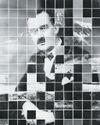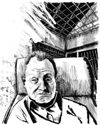AI will bring many wonders. It may also destabilize everything from nuclear détente to human friendships. We need to think much harder about how to adapt.

Humanity is at the edge of a revolution driven by artificial intelligence. It has the potential to be one of the most significant and far-reaching revolutions in history, yet it has developed out of disparate efforts to solve specific practical problems rather than a comprehensive plan. Ironically, the ultimate effect of this case-by-case problem solving may be the transformation of human reasoning and decision making.
This revolution is unstoppable. Attempts to halt it would cede the future to that element of humanity more courageous in facing the implications of its own inventiveness. Instead, we should accept that AI is bound to become increasingly sophisticated and ubiquitous, and ask ourselves: How will its evolution affect human perception, cognition, and interaction? What will be its impact on our culture and, in the end, our history?
Such questions brought together the three authors of this article: a historian and sometime policy maker; a former chief executive of a major technology company; and the dean of a principal technology-oriented academic institution. We have been meeting for three years to try to understand these issues and their associated riddles. Each of us is convinced of our inability, within the confines of our respective fields of expertise, to fully analyze a future in which machines help guide their own evolution, improving themselves to better solve the problems for which they were designed. So as a starting point—and, we hope, a springboard for wider discussion—we are engaged in framing a more detailed set of questions about the significance of AI’s development for human civilization.
THE ALPHAZERO A PARADOX A
This story is from the August 2019 edition of The Atlantic.
Start your 7-day Magzter GOLD free trial to access thousands of curated premium stories, and 9,000+ magazines and newspapers.
Already a subscriber ? Sign In
This story is from the August 2019 edition of The Atlantic.
Start your 7-day Magzter GOLD free trial to access thousands of curated premium stories, and 9,000+ magazines and newspapers.
Already a subscriber? Sign In

The Dark Origins of Impressionism
How the violence and deprivation of war inspired light-filled masterpieces

The Magic Mountain Saved My Life
When I was young and adrift, Thomas Manns novel gave me a sense of purpose. Today, its vision is startlingly relevant.

The Weirdest Hit in History
How Handel's Messiah became Western music's first classic

Culture Critics
Nick Cave Wants to Be Good \"I was just a nasty little guy.\"

ONE FOR THE ROAD
What I ate growing up with the Grateful Dead

Teaching Lucy
She was a superstar of American education. Then she was blamed for the country's literacy crisis. Can Lucy Calkins reclaim her good name?

A BOXER ON DEATH ROW
Iwao Hakamada spent an unprecedented five decades awaiting execution. Each day he woke up unsure whether it would be his last.

HOW THE IVY LEAGUE BROKE AMERICA
THE MERITOCRACY ISN'T WORKING. WE NEED SOMETHING NEW.

Against Type
How Jimmy O Yang became a main character

DISPATCHES
HOW TO BUILD A PALESTINIAN STATE There's still a way.